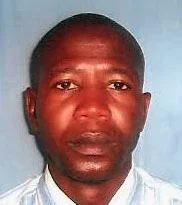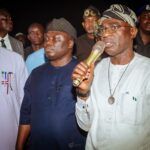Afolabi Gambari
President Bola Ahmed Tinubu is the number one citizen of Nigeria and would be president till May 29, 2027, that is, if he does not win re-election for another term that would terminate on May 29, 2031. But at any rate, he is the current president and it matters not whether anyone voted for him or against him at the 2023 presidential poll. Every rational Nigerian at home or abroad should embrace their reality, and it is immaterial if such a person likes or dislikes Tinubu.
Interestingly, however, the majority of the supporters of Tinubu believe the reality still has to be forced down the throats of others they consider adversaries to the Tinubu that they love. This situation has led many of them to be completely paranoid and too sensitive to any criticism levelled against Tinubu, no matter how slight and no matter how the criticism aims to put Nigeria properly on the path of social, economic and political progress. As far as these supporters are concerned, only themselves alone wish the best for Mr. President. It is difficult to know how they arrived at this juncture.
Last week, during a meeting with a self-acclaimed ‘hard core’ supporter of PBAT, as he affectionately called the president, I merely needed to bring a serious national issue to the fore before the supporter unleashed a tirade on me. I had said: “Nigeria, which is under democratic rule, has been at the mercy of insurgents since 2010. Initially, the insurgents were even in only a section of the country. But now they are spreading to other sections.”
The PBAT supporter snapped almost immediately: “I beg to differ. Security in Nigeria is far better than in any of the neighbouring countries and we have improved from 1999 to date. This administration has done a lot to tame the scourge of insurgency and the latest report from global terrorism index chat showed a steady decline.”
He nonetheless admitted the recent surge in insurgency, which called to question the administration’s capacity to “tame the scourge”. But he still said: “The recent spike is political.” He did not explain what he meant by “political”, despite being prodded to do so. Yet, he said, “The Plateau State Governor said last December was the first time in ten years with no single terrorist attack on the state.”
He admitted to the recent attacks on Plateau State and neighbouring Benue in which nearly 200 innocent people were killed by yet to be identified insurgents. But he would rather not blame Mr. President for it. He instead blamed those he referred to as Fulani, “who believe in the conquest of the indigenous people to grab their lands”. Curiously, he would also not be persuaded to expatiate.
Then I asked him: “Do you agree that insurgency in any country, whether it is political or not, is a failure on the part of any government?” He snapped again: “The current spate of insecurity is not new. It was from the days of Ibrahim Babangida to Olusegun Obasanjo. PBAT inherited it but I can assure you that he is totally equal to the task.” Again, he did not expatiate on how “totally equal to the task” PBAT is.
“Government needs everybody’s support to succeed,” he said. I quipped as follows: “Don’t you think a government must disclose its vision and mission and then try to get the people convinced before asking them for support, especially as the support should not be taken for granted?” He snapped back, yet again: “The government is not a corporate entity but a public entity. By natural expediency, your loyalty should be to your country, regardless of the disposition of the leadership.” I served him a reminder thus: “Isn’t it taken that to whom much is not given, much should not be expected?” No answer. The reason, of course, was obvious. I asked further: “But how do you sacrifice for a country that is not sacrificing for you, especially when life is give and take?” He snapped back once more: “Sacrifice is contextual and you have to understand your country to be able to know what benefits you can get.” I hadn’t finished analysing what the phrase “understand your country” meant when he declared, without being prodded: “I haven’t benefitted anything under PBAT.” I simply said to myself: “Why did he need to say this as if I had asked if he benefited anything?”
Out of the blue, he said: We have over 200 distinct ethnic groups in Nigeria with distinct interests.” I countered him swiftly: “But we didn’t just know this today.” He kept mute. When he found his voice again, he said: “It took Lee Kuan Yew 30 years to transform Singapore. But Tinubu has spent less than 23 months as president.” I said to him, “Therefore, it should take Tinubu 30 years to also transform Nigeria?” His answer was strange, but it was typical of the supporters of PBAT. Hear him: “I don’t know if you have any personal grudge with PBAT.” Apparently, he was getting crossed with me for “hating” whom he loves. Little wonder, he said: “Because I respect you is the reason I am still having this conversation with you. I don’t expect all this from you. I swear, it is out of respect I am still responding.” Then he declared, with a tone of finality: “As for me, it is PBAT till 2031 because I believe in him to turn Nigeria around for the best.” He also served me a salvo: “Kindly change your orientation about the country and the PBAT government.” We parted very shortly after.
A few hours later, Dr. Muda Yusuf, Executive Director of the Centre for the Promotion of Private Enterprise (CPPE), warned that it is not yet Uhuru for local manufacturers who seek to make made-in-Nigeria goods more competitive than ever. “Rising energy costs, poor infrastructure and limited access to credit are still major obstacles for businesses in the Tinubu administration,” Yusuf said. The PBAT supporter I encountered might have also said to Yusuf as he said to me, “I don’t know if you have any personal grudge with PBAT.” Who knows! After all, blind love can’t make the lover see reason and logic.







